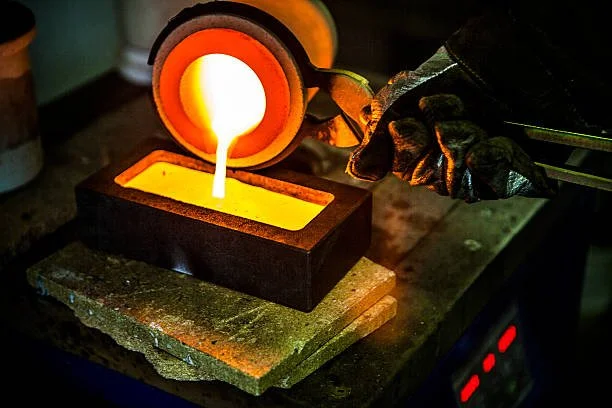Talking about gold
Metals used in the casting process
There are three main types of gold used in the jewellery manufacturing process:
White Gold — This is yellow gold that is generally mixed with nickel and then plated with rhodium: a silvery white metal that gives white gold its shine and luster. The plating process involves dipping the jewelry into a solution containing rhodium, then running an electric current through it to bond the rhodium particles to the surface. This plating process needs to be redone periodically because the rhodium will wear off over time. White gold can also be made by mixing gold with palladium for people who are allergic to nickel.
Yellow Gold — Yellow gold is typically alloyed with copper, silver or zinc, with the gold taking on a more reddish or greenish hue depending on the metal of which it is mixed.
Rose Gold — The pinkish color of rose gold is the result of yellow gold being alloyed with different levels of copper and silver.
The following chart explains how much gold is present in the different karats:
24K = 99.9 percent gold
22K = 91.6 percent gold
18K = 75 percent gold
14K = 58.5 percent gold
10K = 41.7 percent gold
In House Casting
We cast jewellery in house
TJ Handcrafted is a leading jeweller in Auckland with a full scope of jewellery manufacturing and a customer focused approach.
Whether you are creating an engagement ring, wedding band, recreating / redesigning a favourite piece of jewellery, or a customised piece for a client, gold is often the preferred metal of choice.
The gold casting jewellery services offered by TJ Handcrafted allows you to create high-quality pieces of jewellery. We cast any type of GOLD, yes, we can even cast your gold as well. Talk to TJ: 022 162 1266. Your dream is our masterpiece.



